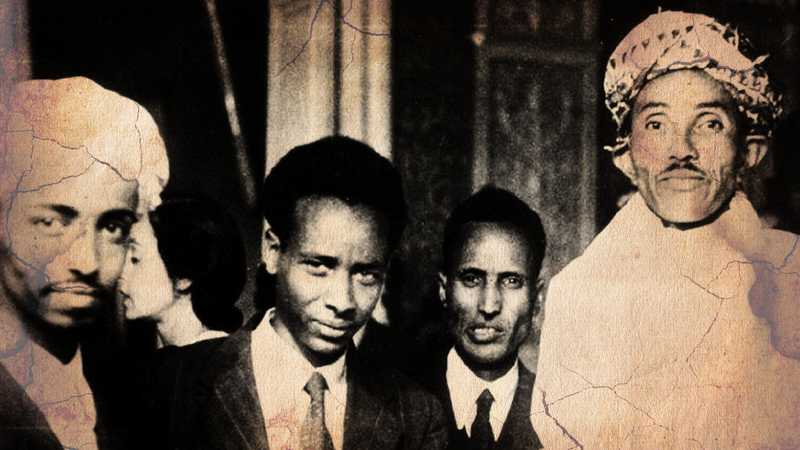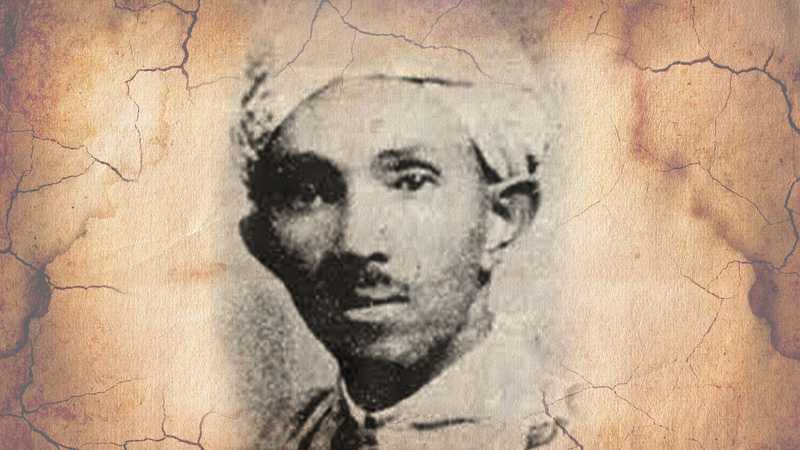The Assassination of Abdulkadir Kebire
27 Mar, 1949
Abdulkadir Kebire, pioneer of the movement for independence of Eritrea from Ethiopia, was fatally wounded by Unionist sympathizers' attack in Asmara.
Abdulkadir Mohamed Saleh Kebire, the brilliant politician and well-respected pioneer of the movement for Eritrean Independence was fatally wounded in an assassination plot carried out by Unionist sympathizers in Asmara as he was preparing to head to New York to attend the UN session where he was to make the case for the independence of Eritrea.
Sheik Abdulkadir Kebire played a pivotal role in Eritrea’s political landscape in the 1940s.
Early Life and Education
Kebire was born in 1902 in Massawa to a prominent religious family. As a child, he attended Khelwa (Quranic school) and studied the Quran and Arabic. He later went to primary school up to fourth grade, as further education was banned under Italian occupation. This did not stop Kebire who was a consummate knowledge seeker. He enriched himself through self-education, taking advantage of his family’s rich library.
At 18, Kebire visited Egypt and was inspired by the revolution of Saad Zeqlul against the British. This experience shaped his rebellious character and interest in politics and liberation. While working as an advisor and translator at the Italian Embassy in Yemen, Kebire built connections with intellectuals and politicians. He even participated in a team attempting to broker peace between Saudi Arabia and Yemen.
Role in the Eritrean Politics of the 1940s
When Britain defeated Italy in 1941, Kebire was outraged that they maintained the Italian governing system over Eritrea. He quickly co-founded the Liberal Nationalist Party to safeguard Eritrean interests. Kebire organized the first public political protest demanding the removal of Italian bureaucrats from administrative positions.
Kebire later co-founded the Mahber Fiqri Hager (Love of the Nation) party and served as its vice chairman for 5 years. In 1946, following divisions after the Bet Giorgis convention, Kebire joined the Al Rabita Al Islamia, or the Muslim League led by Ibrahim Sultan. Kebire became the party’s dynamic political operator in Asmara under Sultan, its inimitable strategist.
On June 10, 1946, at a rally of thousands, Kebire gave a stirring speech stressing education as the means to freedom. His excellent oratory and vision cemented his reputation as a charismatic, respected leader. Known for his bold yet diplomatic speeches, Kebire had mass appeal with his message of unity and liberty through education.
Assassination and Legacy
In March 1949, Kebire was chosen to present Eritrea’s case for independence to the United Nations. This threatened the pro-Ethiopia Andnet or Unionist party. Days before his UN trip, On Sunday, March 27, an Andnet agent followed Kebire as he left the popular Mohammad Abera Hagos cafe in Asmara and shot him and fled. He clung to life for two days before succumbing to his wounds at age 47. He was laid to rest on March 30 with thousands attending to pay their respect as well as to rally behind the cause that he championed, full Eritrean Independence.
Kebire’s absence severely hampered Eritrea’s independence bid. The movement lost its brightest legal advocate in Kebire. Thousands attended his funeral, and the procession that followed Kabire’s body was deemed the largest in Asmara at the time.
Today, Eritreans remember Kebire as a selfless patriot who sacrificed his life for Eritrea’s freedom. He represented integrity, leadership, and vision during a pivotal juncture in history. Kebire’s stirring speeches and organizing efforts would be an inspiration for generations to come.
 Abdulkadir Kebire, far right, days before his assassination; with Yohannes Tsegai second from left
Abdulkadir Kebire, far right, days before his assassination; with Yohannes Tsegai second from left

